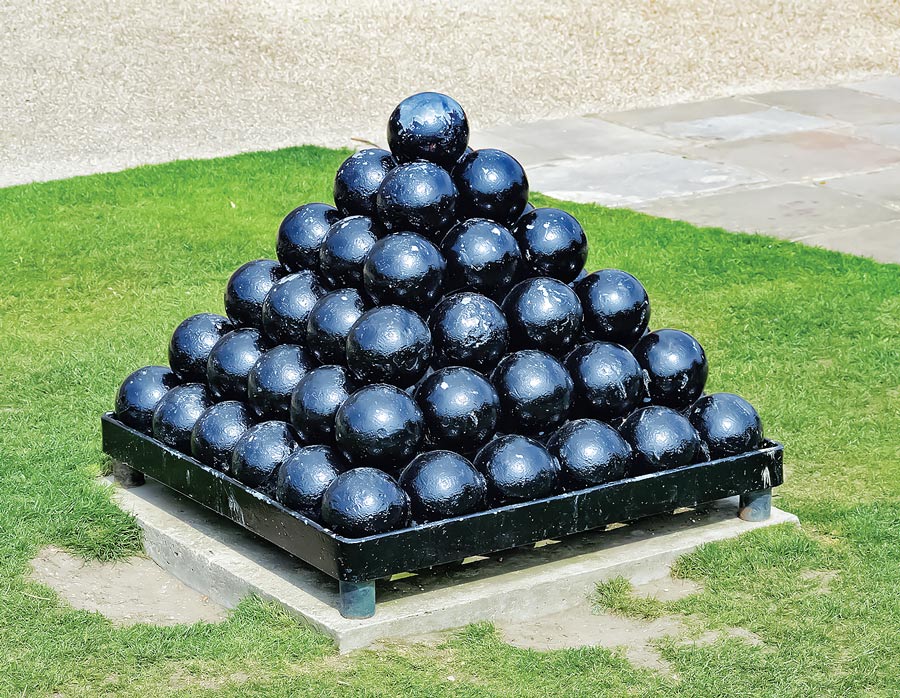


So when I heard a co-worker say on a very cold boating trip last fall, “It’s cold enough to freeze the balls off a brass monkey,” I immediately wanted to call him out for making up such an odd saying, but instead I did a quick search so I didn’t embarrass myself. Turns out this saying is legit and in fact it’s boating related, similar to a lot of words that we use today.
Back before Captain Jack Sparrow sailed the Black Pearl, cannonballs on old wooden warships were stacked into pyramid shapes. At the base of each pyramid was a large, cupped tray. Made of brass, this tray was called a “monkey” and it held the iron cannonballs in place. During frigid weather the brass tray would contract, causing the stack of cannonballs to spill. As you can see, the weather aboard a ship was literally cold enough “to freeze the balls off a brass monkey.” Thanks, Google, for saving me on that one.
You think that’s interesting, check out some other “common” words and expressions that we use today.
Have you ever used, “cut and run” when you’re trying to get out of a bad situation? This refers to a tactic used by ship’s crews to make a quick escape while at anchor. Rather than take time to pull up the anchor, a crewman would simply grab an ax, chop through the anchor line, and be off. I’ve had to leave an anchor before, but not because I was in a rush. Sigh.
Here is a real head scratcher. How many times have you heard someone say they eat three square meals a day? What exactly is a square meal? This actually refers to the wooden trays or dishes that were used for eating on a ship. They were square-shaped for secure stowage. Think about it, what would you call a meal served on a square tray?
Have you ever told a friend he’s “three sheets to the wind?” For reasons only they can fathom, sailors refer to the ropes that maneuver a ship’s sails as “sheets.” When they’re mishandled, sheets fall “to the wind.” A ship with three sheets to the wind has lost its control and is wallowing from side to side, not unlike someone who’s had a tad too much to drink.
And if the sailor who was three sheets to the wind got caught by his ship’s officers, he would have been bound in front of the entire crew and flogged with a cat o’ nine tails, often at the hands of one of his mates. However, many members of the crew had an agreement among themselves to use the lash gently, in case they found themselves in similarly dire circumstances and in need of a favor. Thus came the expression, “You scratch my back and I’ll scratch yours.”
Finally, if a sailor suffering from a severe back scratching might be ordered to stay below deck. By placing a stricken sailor under the deck, or “under the weather,” his chances for a quick recovery were improved by limiting his exposure to the harsh conditions outside.
Now if I could only explain where I come up with the other expressions that I use on a regular basis, I’d be happier than a dog with two tails.
